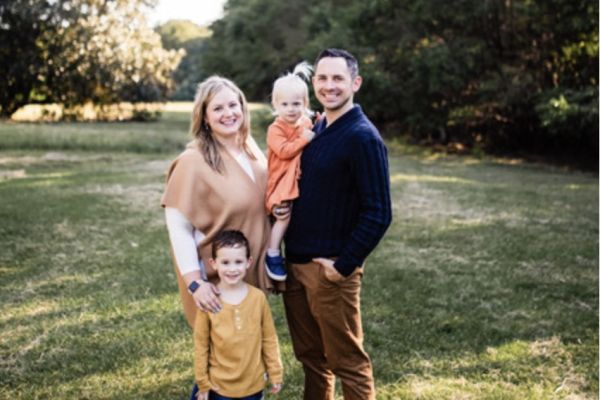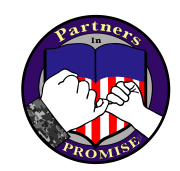
This Thing Called Respite
| Featured Article
I am a neurodivergent mother, a nurse, and an Air Force Key Spouse. Nothing could have prepared me for the challenges I would face after moving to Fort Eisenhower. These challenges included losing continuity of care and discovering no Exceptional Family Member Program (EFMP) Respite Care for an Air Force family at an Army installation.
Navigating the Diagnosis: Understanding Autism
My son was eight months old when I realized that he wasn’t eating as well as he used to. He went from eating everything we put in front of him to only certain foods and then only certain packaging colors. He could have been a better sleeper; bedtimes took an hour or longer. Being my first child, I knew something was off, but I didn’t know what.
Fast forward to his three-year checkup, and our pediatrician suggested an autism evaluation. As we thought, the pediatrician diagnosed Henry with an autism spectrum disorder. He is brave and brilliant but has a unique set of challenges. I had concerns about our military lifestyle, but I knew there were resources and programs to aid us in our journey.
Reality Check
We moved to Fort Eisenhower (previously Fort Gordon) shortly after Henry’s diagnosis in the summer of 2023. New people, building a new support system, and what life looked like with a neurodivergent child were ahead of us. My husband worked long hours, and the Exceptional Family Member (EFMP) Respite Care Program was our saving grace. I had seen it work for other families, keeping their marriage together. Then reality hit. We are an Air Force family at an Army installation. No EFMP Respite Care is here for our Air Force families. It is a name-only program for our Air Force families here.
I spent our first summer unraveling the EFMP Respite Care mess between our servicing Air Force base and our current installation. I spent hours on the phone trying to access this resource that would allow my husband to do his best at work and keep me sane. To add insult to injury, our families saw what the new Department of Defense (DoD) Respite Care Standardization will look like. I spent time as an advocate at the bedside as a nurse and a Key Spouse. However, this has now taken on a personal aspect.
As my son grows and develops, so does his autism. We had a support system built at our last duty station, so our need for respite care was not as great. Of the many proposed changes to EFMP Respite Care, a few things hit us hard – no sibling care and not knowing what constitutes moderate versus severe needs in the new Level of Need rubric.
Challenges in Accessing EFMP Respite Care
EFMP Respite Care was the only program to offer sibling care (Tricare Extended Health Care Option respite does not provide this). How am I to have respite when the program only isolates my special needs child? Childcare costs are high anywhere you are stationed. Community providers do not offer drop-in care for my other child; it is not affordable if they do. Then there is the aspect of leaving my autistic child with someone new and not giving him the stability of a family member to be by his side.
EFMP families are highly complex. I appreciate the DoD Office of Special Needs, which oversees the EFMP and acknowledges our community’s special needs. Still, great harm can result if they do not make changes with stakeholder input.
Advocacy for Improving EFMP
I have heard that EFMP wants to empower families to be their own advocates. I have never met a special needs parent who was not the very definition of an advocate. We advocate for our special needs kids in every aspect of life – to their teachers, doctors, occupational therapists, speech therapists, and every person who interacts with my child. We know our children in their highs and the lows no one sees.
We will advocate all day long for our children. Self-care is a lofty idea for many EFMP families. If I lose my temper, it will cause a regression for my son. I am still slow to identify the signs of when I need self-care, let alone advocate for myself to have respite. Time is precious, and now access is even more difficult when we do not know if we will qualify until after the newly required paperwork is complete.
I understand that some families will see an increase in the hours of care or the addition of adult respite care because of the DOD EFMP Standardization. I do not want to make the case that these things are unnecessary because they are. However, hurting some families to help others is not a viable solution.
Getting It Right for All
At every duty station we have been at since COVID, an EFMP family has gone into crisis and ended in tragedy. That is the seriousness of getting the program right. In 2021, Blue Star Families released a study titled “Caregivers in the Military.” The study revealed that a significant number of caregivers desire mental healthcare for themselves but are unable to seek it. The data highlights the need for appropriate changes. Therefore, it is crucial to provide respite care to prevent caregiver burnout and avoid pushing families into crisis.
EFMP families should have access to this vital benefit when mission needs change quicker than the paperwork. It is essential for sustaining the wellness of a military family in the dynamic and rapidly evolving military environment.
About the Author

My name is Amanda Larimore. Caring and advocating for others in some capacity has always been my passion. Before becoming a mother in 2019, I worked as a critical care nurse at the bedside for seven years. I have served as a Key Spouse at various squadrons since 2019. In 2020, I was awarded Key Spouse of the Year for the Air Force’s 67th Cyber Wing. I have been married to the love of my life for six years. We have shared three duty stations, five moves, and two beautiful children. You can connect with me on LinkedIn.





The Department of Defense (DoD) Respite Care Standardization link does not appear to be working and I would love to see the document.
PS love your work and passion for this issue!
I’m so sorry! Here’s the link: https://www.defense.gov/News/Releases/Release/Article/3437493/new-defense-department-policy-standardizes-exceptional-family-member-program-ac/
Thank you for your kind words!